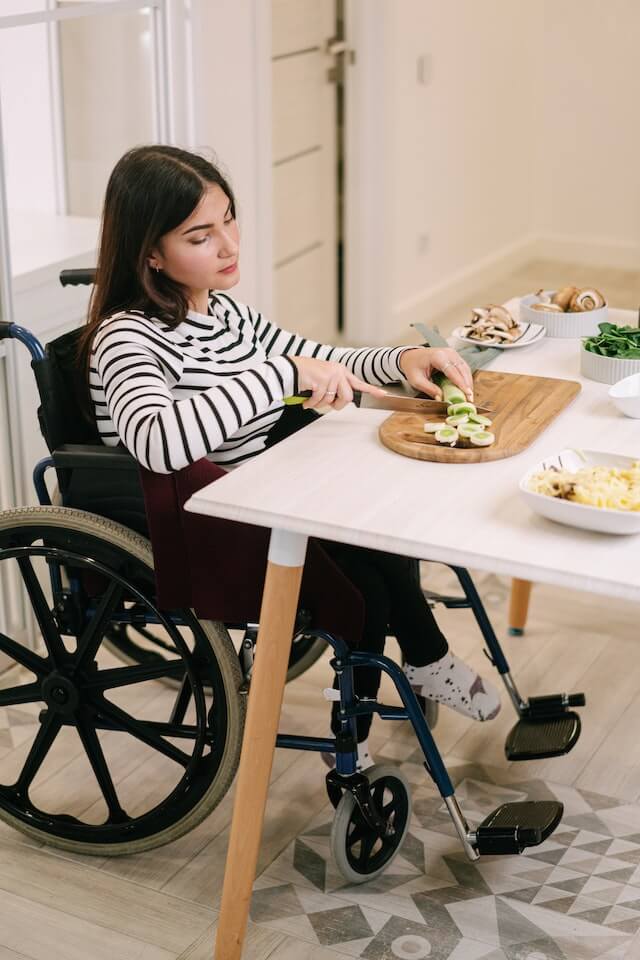Raise awareness this Food Allergy Week
Food Allergy Week Australia takes place from 21 to 27 May and is the perfect opportunity to raise awareness of what food allergy means.

It’s a topic that is relevant to many of us since according to Allergy & Anaphylaxis Australia, around 2% of adults and 10% of children up to 12 months of age have a food allergy.
As well as raising awareness this Food Allergy Week 2023, you can also find out more about how allergies can be treated and managed in day-to-day life, so let’s take a look at these topics in our latest article.
What is a food allergy?
An allergy is when your body’s immune system overacts to a substance that is normally not a problem. These substances are called allergens.
Common food allergens include:
- Eggs
- Milk
- Peanuts
- Tree nuts
- Fish
- Crustaceans (for example, crab, lobster, shrimp)
- Molluscs (for example, mussels, squid, octopus)
- Soy
- Sesame
- Wheat
- Lupin (a legume related to peanut and soya)
Symptoms of food allergy include:
- Itchiness in the mouth, ears or throat
- An itchy red rash, also known as urticaria or hives
- Swelling of the face, lips, tongue, roof of mouth or eyes
- Vomiting
In the most severe cases, someone who is allergic to certain food may experience anaphylaxis, which develops and worsens quickly and can be life-threatening. Symptoms of anaphylaxis include:
- Difficulty breathing
- Wheezing
- Rapid heartbeat
- Clammy skin
- Feeling faint
- Confusion
- Loss of consciousness
If you suspect someone is experiencing anaphylaxis, you should call triple zero (000) for an ambulance.
What treatment for food allergies is out there?
If you have food allergy symptoms, the first step is to discuss these with your doctor. They can arrange for tests to find out exactly what you are allergic to.
There are two main types of treatment available for food allergy:
Antihistamine medication blocks histamines, the compounds which are responsible for the allergy symptoms you experience.
If you suffer from severe reactions or anaphylaxis, you may be given an adrenaline autoinjector (which are commonly known by their brand names, such as EpiPen) to use in an emergency.
How can I manage food allergies?

If you have a food allergy, you can still live a full and active life. Here are some simple steps you can take to give you confidence and help you manage your food allergies:
- Wash your hands before preparing food and eating.
- When preparing food, make sure your work surfaces and utensils are clean. You may want to allocate kitchen and dining equipment that can only be used by the person in your household who has a food allergy.
- Make sure your friends and family are aware of your food allergy.
- If you go out to eat, tell the restaurant staff about your food allergy.
- Avoid buffets that have a higher risk of cross-contamination.
- Get into the habit of reading food labels so you understand what exactly is in the products you are buying.
- Stock up on antihistamines so you have them available when needed.
- If you use an adrenaline autoinjector, make sure you are confident using it and that family, friends and colleagues know how to use it too. Keep it with you at all times.
- Get yourself a medical ID that contains details of your food allergy. You can choose from comfortable silicone bracelets, wallet cards, or necklaces that can specify your particular food allergy and any medication you are taking. This means that you can get the right treatment in the event of a medical emergency. Know that the Mediband range of med alerts and bracelets can be customised with your personal information, so you can add in other details like a contact number too — it’s up to you how much or how little info you include on your medical alert!
Be aware this Food Allergy Week
Food allergies are common, which is why it’s a great idea to find out more about them this Food Allergy Week — even if you don’t have one, you’ll be sure to have a family member, friend or colleague who does.
And if you or a loved one has been diagnosed with a food allergy, don’t despair. There are lots of simple lifestyle changes you can make to help you live your life with confidence.
Choose a medic alert from the Mediband range and know that if you ever need help, you can get the right treatment at the right time!
Browse our range of medical IDs and other health and wellbeing items this Food Allergy Week and treat yourself, a friend, or a family member to the gift of confidence!

